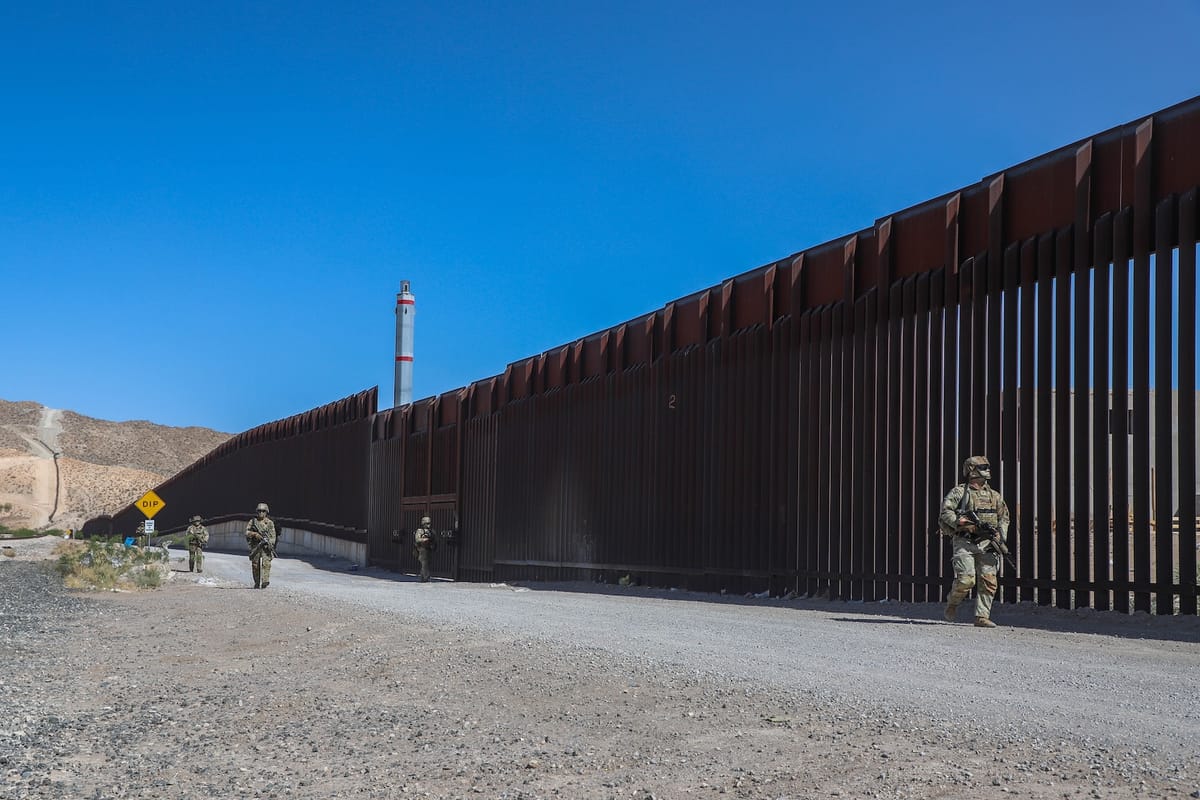

Strengthening Border Security Through Military Oversight
The United States has taken a bold step in securing its southern border by initiating criminal prosecutions against migrants who illegally enter a newly designated military zone along the U.S.-Mexico border. On April 15, the Department of the Interior transferred nearly 110,000 acres of federal land to the Army, creating a National Defense Area that spans parts of New Mexico, Arizona, and California. This move, authorized by President Donald Trump’s memorandum, aims to curb illegal immigration and trafficking by treating the Roosevelt Reservation—a 60-foot-wide federal corridor—as a military installation.
According to court filings, 28 migrants have been charged with illegal entry and violations of security regulations for breaching this restricted zone in New Mexico. The charges carry significant consequences, with potential penalties of up to 10 years in prison for those convicted, as stated by Secretary of Defense Pete Hegseth. ‘You add up the charges of what you can be charged with misdemeanors and felonies, you can be looking at up to 10 years in prison when prosecuted,’ Hegseth emphasized during a visit to the border.
A New Approach to Border Enforcement
The creation of the military zone marks a significant shift in border enforcement strategy. The Department of Defense now oversees this area, with approximately 11,900 troops deployed to the southwest border to assist U.S. Customs and Border Protection. Migrants detained in the zone are handed over to Border Patrol agents for processing, but the military’s authority to interdict trespassers strengthens the government’s ability to secure the border. ‘Any illegal attempting to enter that zone is entering a military base, a federally protected area,’ Hegseth said in a social media video, underscoring the zone’s designation as a military installation.
This initiative follows President Trump’s declaration of a national emergency at the southern border in January, which has led to a sharp decline in illegal crossings. Government data shows that only 7,000 illegal crossings were recorded in March, down from 28,654 in February, reflecting the effectiveness of the administration’s policies. The military zone, initially implemented in New Mexico, is part of a broader plan to expand similar zones along other border areas, as Hegseth revealed during his visit.
Legal and Operational Details
The prosecutions target migrants who cross into the newly controlled National Defense Area, previously known as the Fort Huachuca annex zone. Federal prosecutors have applied charges for both illegal border crossing and breaching a restricted military area, a novel approach that increases penalties for unauthorized entry. The Army’s oversight of the 170-mile strip along the border allows for enhanced patrols and infrastructure development to prevent illegal activities, including human and drug trafficking.
The transfer of land to military control was executed on an emergency basis, as outlined in Trump’s April 11 memorandum, ‘Military Mission for Sealing the Southern Border of the United States and Repelling Invasions.’ This directive instructed the secretaries of Defense, Interior, Agriculture, and Homeland Security to secure federal lands for military activities. Secretary of the Interior Douglas Burgum announced the transfer, noting that it would protect sensitive resources while supporting Border Patrol operations.
Leadership and Commitment to Border Security
President Trump’s administration has prioritized border security, with key figures like Border Czar Tom Homan reinforcing the government’s stance. Homan recently stated, ‘Make no mistake, if you’re in the country illegally, and you fail to do what the law requires, we will prosecute you,’ addressing the 1.4 million illegal immigrants who have been ordered to leave but remain in the U.S. This tough stance aligns with the administration’s broader goal of deporting unauthorized migrants and deterring future crossings.
The military’s expanded role has been carefully structured to comply with legal boundaries, with troops acting in support of civilian authorities rather than directly enforcing immigration law. General Gregory Guillot, commander of U.S. Northern Command, affirmed, ‘Through these enhanced authorities, U.S. Northern Command will ensure those who illegally trespass in the New Mexico National Defense Area are handed over to Customs and Border Protection or our other law enforcement partners.’ This collaboration ensures that the military’s involvement strengthens, rather than replaces, existing Border Patrol efforts.
Dues are $12 per year. Member benefits:
✅ Ad-Free Website Viewing
✅ Advocacy for Republican Seniors
✅ 120+ Senior Discounts
✅ Member Only Newsletters